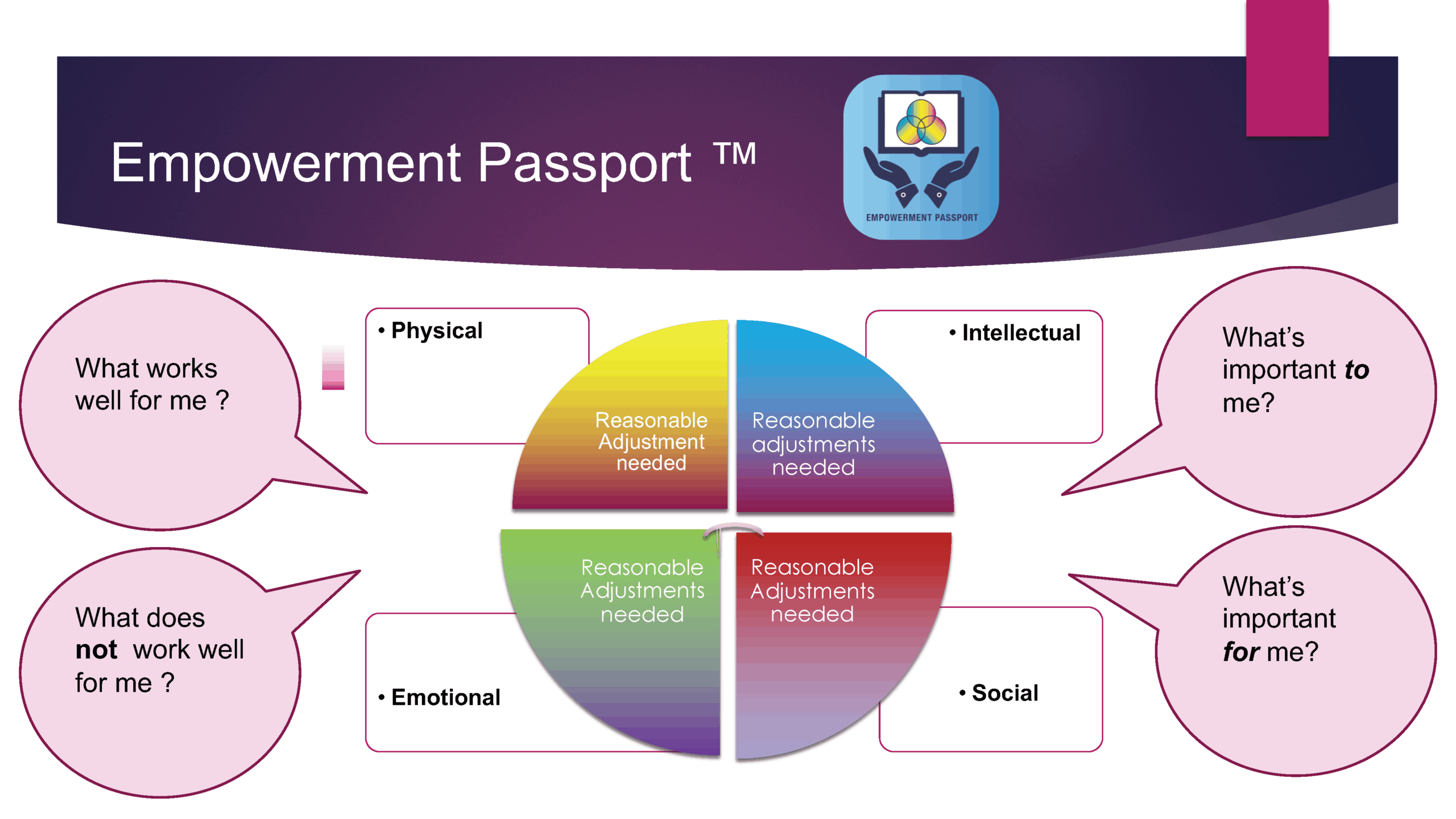What Is the Empowerment Passport?
The Empowerment Passport is a personal development tool designed to help you communicate support needs clearly and confidently across four domains: Physical, Intellectual, Emotional and Social. You may choose to complete all sections or focus only on those most relevant to your situation.
Each domain offers prompts for reflecting on your strengths, needs and challenges. In addition, space is provided for your own notes, while example phrases can guide your thinking. You can build and update this document at your own pace—just remember to save changes regularly.
Real Stories: How the Empowerment Passport Helps
1. Philip’s Journey: Neurodiversity at Work
Philip Scholl is a 21-year-old marine biology graduate (2:1) living with Dyslexia and ADHD. During university, he accessed equipment adjustments, extra exam time and 1:1 mentorship to succeed. However, as he entered a competitive job market, Philip felt anxious about disclosing his condition.
Therefore, he completed his Passport, recording the specific adjustments and support services that helped him excel. He also uploaded his previous student disability report for easy reference. By sharing this comprehensive document with recruiters and prospective employers, Philip fostered understanding from the outset. Consequently, his interview process included inclusive arrangements that reflected Equality Act guidelines.
2. Olivia’s Adaptations: Managing Chronic Pain
Olivia McDonald is a 32-year-old laboratory technician at a large acute hospital. Four years ago, a road traffic accident caused whiplash that developed into chronic back pain. As a result, she reduced her working hours from 37.5 to 22.5 per week. Her condition affected her ability to lift, sit or walk for extended periods and also impacted her mood and sleep.
Following increased sickness levels and an Occupational Health referral, Olivia needed a clear way to communicate required adjustments. Accordingly, she used her Passport to detail effective interventions—ranging from ergonomic workstation setups to modified duty schedules. Her manager then endorsed these measures through the Action Plan, resulting in improved attendance and wellbeing.
3. Ellen’s Return: Mental Health Support
Ellen Waring, a 57-year-old dental assistant, took a five-month sick leave due to long-standing depression and anxiety, which culminated in hospitalisation. In addition, she manages diabetes and meets with a community psychiatric nurse every three months. Ellen’s mental health challenges often intensify during periods of change. Indeed, her recent relapse followed the practice’s acquisition by a corporate chain and appointment of a new manager.
To facilitate her return, Ellen worked with her nurse to complete her Passport and attach her Wellness Recovery Action Plan. Consequently, her new manager reviewed the document and implemented practical adjustments—such as flexible scheduling and regular check-ins—that supported Ellen’s sustained wellbeing at work.
Why Use the Empowerment Passport?
- Communicate your individual needs with clarity and confidence.
- Help employers and educators understand the support that works best for you.
- Avoid repeating your story to multiple services—your Passport brings it all together.
- Store important documents securely, such as disability reports and action plans.
Whether you’re navigating education, employment or personal health challenges, the Empowerment Passport gives you a voice and a plan.








